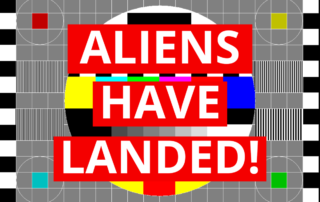Are you aware of your Digital Footprint?
Recently, EAVI and the European Digital Learning Network (DLEARN), in collaboration with Prof. Przemek Sękalski of the Technical University of Lodz, worked together in developing an EU survey that analyses citizens awareness regarding their digital footprint. The survey aims to analyse how much control participants exercise over this digital footprint and how much control they wish they could have as well are looking at the safety aspects they would like to see in place in the future! The aim is to study the results to highlight potential areas in education and training that could be [...]
How Media Literacy and Sustainability Go Hand in Hand
Besides the tremendous heat wave we are experiencing these weeks, there are many things that encourage my reflection on climate change these days. But beyond focusing only on the disastrous consequences of decades of reckless activities harmful to our environment, I like to discover new ways in which people are creating a positive impact. How do I find about this? Well, word of mouth is of course part of it, but most movements I have discovered-- and maybe so have you-- have been from the hours I spend constantly scrolling online. Technology and digital communications [...]
Fake news and critical literacy in the digital age: sharing responsibility and addressing challenges
How can we tackle the ongoing challenge of so-called ‘fake news’? Gianfranco Polizzi, PhD Researcher in the Department of Media at Communications at LSE, argues that we all have a responsibility to learn critical literacy to help us better to evaluate information, both on- and offline, and here sets out the responsibilities held by the different actors involved. This post was first published on the London School of Economics' Media Policy Project Blog on May 21, 2018. Social inclusion and democratic participation rely on opportunities to access, express and share information as citizens. The extent to [...]
Digital citizenship needs to be a group effort
The following article was written by Sarah Stoeckl, senior project manager in the ISTE Standards Department. She worked as a writing and literature teacher before becoming an administrator, writer and project wrangler. A student shares his email password with a friend, who shares it with another friend, who sends an inappropriate picture to everyone in the students’ contacts list. It was a joke! But that doesn’t mean there won’t be repercussions. Who failed to teach these kids password safety and email etiquette? Another student wants to fund a film project that combines digital art with music. [...]
Where do we draw the line?
With the recent Cambridge Analytica revelations, will we finally draw the line on Facebook's invasions of privacy, especially when it has acted as a platform of mis- and dis-information for so long? In the last three hours on my Facebook newsfeed, I have witnessed: Two people boasting about illegal activity on community pages; A petition to end an animal welfare issue that has been illegal for 9 years; A misogynistic joke straight out of the 1950s. It wasn’t funny then, either; An overtly racist meme (adding idiocy to insult, it said burka when it [...]
Seminar: Protecting European Democracy in a Post-Truth Society, European Parliament
On 6th of September Marietje Schaake and Morten Løkkegaard from Alliance of Liberals and Democrats for Europe hosted a seminar “Protecting democracy in a post-truth era.”
Facebook’s Fake News Problem and What You Can Do to Stop It
Post-truth was named word of the year by Oxford Dictionaries last week as the scramble to understand what exactly happened in the US election was well underway. One argument being forwarded is that the proliferation of fake news on Facebook may have influenced the result.


























































































































































